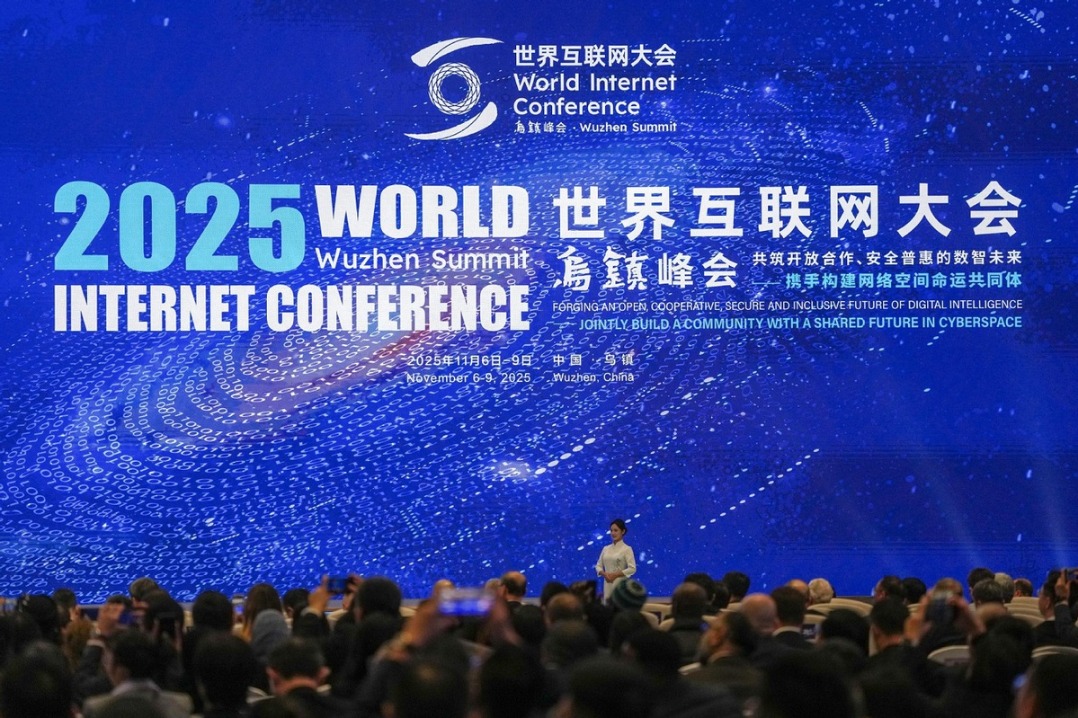Time to give


Philanthropy can play an important role in helping China achieve the SDGs
As this year is the fifth year of the adoption of the United Nations 2030 Agenda for Sustainable Development. It's a good time to reflect on the roles played by different stakeholders and their potential.
The solidarity among the UN, governments, the private sector and civil society to achieve the 2030 Agenda and the 17 Sustainable Development Goals comes from a sense of philanthropy. However, the contribution of philanthropy to development is not as systemized as government intervention or as well presented as corporate social responsibility activities.
With regard to development, philanthropy lacks visibility. However, the philanthropic sector in China plays a significant role in building partnerships, providing new financing opportunities and strengthening collaboration among stakeholders. Comprehensive and credible data show philanthropy is helping to generate the collective effort needed to achieve the SDGs.
Within the philanthropic sector, foundations have always been at the forefront in finding solutions to development issues and addressing the needs of marginalized groups, either by means of grants, charitable projects, or serving as the "philanthropic bank" to catalyze social investment.
The 2030 Agenda and SDGs have become ingrained in China's philanthropic sector since 2015. The number of foundations, projects, and project expenditures contributing to the SDGs has seen a steady growth. The number of foundations increased from 3,551 in 2015 to 4,388 in 2018, rising 23.6 percent, while the number of philanthropic projects increased from 19,501 to 29,909, up 53.4 percent. Overall project expenditure rose by 94 percent, from 3 billion yuan ($453 million) to 5.8 billion yuan over the period.
The SDGs are to a large extent recognized and applied at the project level by Chinese foundations. Over the past five years, the majority of philanthropic projects and funds in China have been devoted to the SDGs relating to people's well-being-such as SDG 4(quality education), SDG 1(no poverty), SDG 11 (sustainable cities and communities) and SDG 3(good health and well-being).
Nearly 70 percent of foundations have worked on education issues and 60 percent on poverty alleviation. Thanks to the government's poverty alleviation campaign, the philanthropic expenditure relating to poverty elimination increased at a relatively faster rate than others. Most of these projects focused on improving the well-being of beneficiaries and not just raising their incomes.
Foundations in several Western and Central provinces dramatically increased their project expenditure. Foundations in Guizhou, Jiangxi, Hebei and Hubei provinces quadrupled their charitable expenditure, the highest increase nationally. Between 2015 and 2018, Guizhou's investment in charitable projects shot up tenfold.
The SDGs that are lagging behind for want of attention are those related to environmental issues, namely SDGs 12-15(responsible consumption and production, climate action, life below water and life on land) and SDG 7(affordable and clean energy).
In recent years, these SDGs have been receiving little or declining support from foundations. The Sustainable Development Goals Report 2019 by UN pointed out that environmental goals remained "significant challenges" to China realizing the 2030 Agenda. There is an urgent need to increase investments for these SDGs, as no SDG can be realized alone.
Help could come from corporate foundations, such as Laoniu Foundation, Wanke Foundation, and SEE and Paradise, whose missions are in line with environmental sustainability. Some of them have initiated projects to tackle particular environmental issues, but these are still in their early stages. Collaboration could make these projects more effective.
It will be interesting to track their progress in five years, but there is no common and feasible impact measurement system in the philanthropic sector. That is also obstructing cross-sector collaboration between philanthropists and public or private players, something that could give a boost to resource mobilization.
This is where digital technology can help, being a transparent platform offering tracking and shareability options to evaluate projects and measure their impact. In addition, tech-enabled infrastructure and tools can facilitate targeted crowd-funding and crowd-sourcing to mobilize more resources.
State policy and inputs also help by providing incentives for greater philanthropic engagement as can be seen from the poverty alleviation campaign.
In the 14th Five-Year Plan (2021-25) period, the State is sure to give greater attention to public health (SDG 3), clean energy (SDG 7), reduced inequality (SDG 10) and higher-quality urbanization (SDG 11).
Not only will massive amounts of funding be oriented toward these areas, policy endorsement may also unleash the potential of other actors in the Chinese philanthropic sector, such as the Charity Federation System which represents one-third of all philanthropic donations in China.
However, the impacts of the pandemic could lead to decreased donations and unequal distribution of expenditures in focus areas, as well as in regions. As difficult as it may be for foundations, it is crucial that they align their strategy with their vision and mission. Sustained giving by donor companies and individuals should be encouraged for more effective philanthropy.
With innovation and increased collaboration, China's philanthropic sector could help the country achieve the SDGs. Chinese foundations have been contributing to development issues by creating innovative models and instruments, offering opportunities to leverage public and private funding to fill development gaps efficiently. International development agencies and foundations need to continue facilitating the integration of SDGs into philanthropic activity within and outside China, and also re-examine the changing socioeconomic, political and cultural challenges we face in the post-pandemic era to continue working toward and fulfilling the 2030 Agenda.
Wang Rui is China representative of Global Giving and a consultant and co-author of the United Nations Development Programme's Philanthropy for Sustainable Development in China report. Deng Minne is a program coordinator and a co-author of UNDP's Philanthropy for Sustainable Development in China report. The authors contributed this article to China Watch, a think tank powered by China Daily. The views do not necessarily reflect those of China Daily.

































